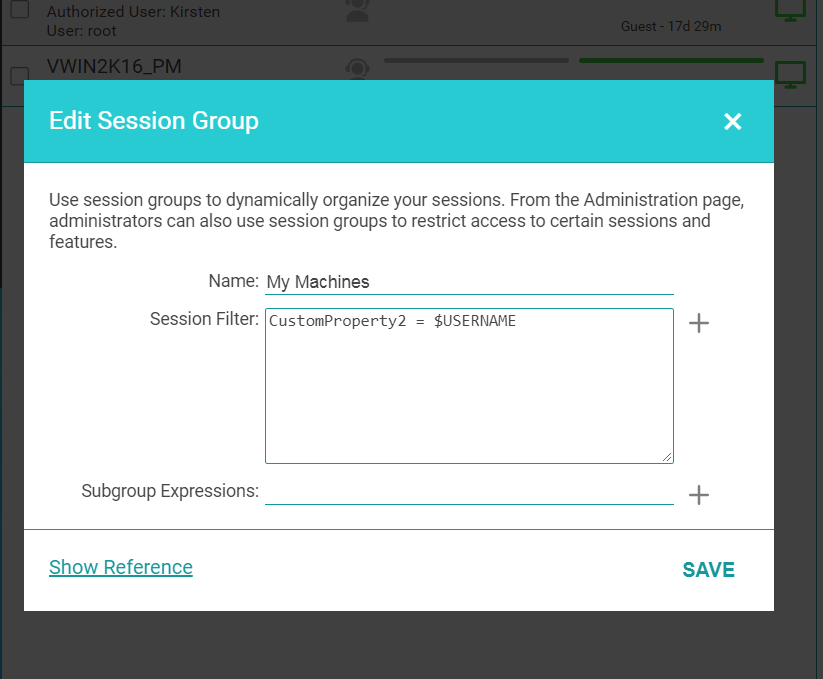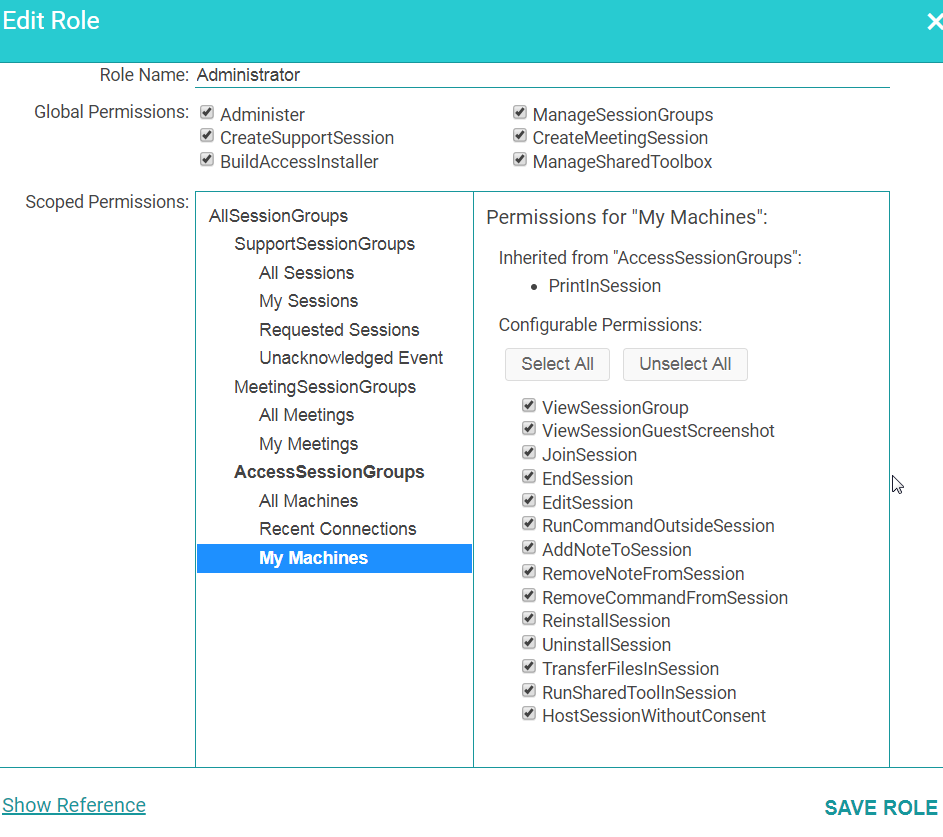Add Ability to Hide Session Groups
We have over 50 clients, and each has their own session group. Then we have additional session groups for certain users in each company to be able to log into their own computers as needed. This is adding up to a large number of individual session groups. I'd like to be able to either hide session groups from view (maybe a flag on the session group you can set and a button at the top to show hidden when needed, and specific to the user logged into SC), or to put them into a "folder" for lack of a better word so they can be minimized, but not removed. Thanks!








@ Mike I was reviewing your request and notice you mentioned having session groups for individuals to control their machines. Ideally, one global 'My Machines' group could help cut down on the number of session groups in your view.
Your 'My Machines' session filter would look like this:
The USERNAME refers to the login(Display Name) used by your host. It's the same thing that appears on the user badge on the host page.
Hope this helps. Your request is still under review, but we're doing a manage session groups interface update in Q1 that will need to be done, before we can consider any changes to grouping.